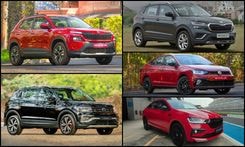Why The Shift To BS 6 Emission Norms Could Be Very Thorny
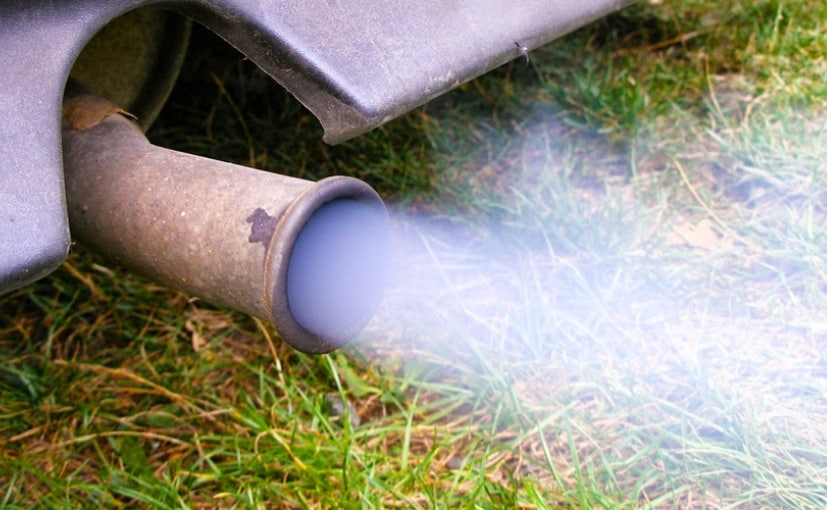
- Current BS 4 vehicles will have to meet BS 6 emission norms by 2020
- Manufacturing, sales & registration of BS 4 vehicles will stop in 2020
- Oil companies will have to be ready with BS 6 fuel by September 2019
The drama we witnessed in the last two weeks of March over the transition to BS IV or Bharat Stage Four emission norms across India was quite remarkable. And within that we also have a very clear message. That the judiciary is going to step in to ensure government, and also industry for that matter - is mindful and acts on the pollution problem plaguing our country. But first lets look at the April 1 2017 deadline for the complete nationwide transition to BS IV. You would recall that India's auto industry had petitioned the court to accept its version of the interpretation of the government order - that mandated the shift. The industry said the order implied that only BS IV vehicles would be manufactured from the said date, while sales of BS III stocks may continue. But as far back as September 2016, the EPCA (Environment Pollution Control Authority) had warned that the order was meant to see a complete stop of all BS III vehicles by then - including sales and registration too. The EPCA was set up at the behest of the Supreme Court and eventually ruled - just 2 days before the deadline, that the date was absolute, and that any left over stock must be sold by the industry before April 1. We saw discounts and mayhem like it was a double-Diwali - with schemes ranging from 10 to 25 per cent off the price of some bikes to even free bikes being given with larger ones from the same brand.
Of course you are free to choose which side you agreed with or didn't. But the court's order was very clear. It also justified the fact that there were two deadlines (April 1 2016 for all-new models to be launched as BS IV only, and a year later for existing models to transition). And in all the manufacturers got time from March 2014 when the order had first been issued. So the real question that emerges now - and one I am watching keenly - is what will happen with the next emissions cycle leap that India wants to make. It was once again the Supreme Court that ruled last year that India leapfrog Stage V norms and go straight to BS VI - on April 1 2020. That is a whole 5 years before the initial deadlines set years ago. And this time there is just one deadline for a nationwide switch. The move will also no doubt take the March 29 2017 ruling as precedent and that is why I called the next deadline absolute. This means there is unlikely to be any ambiguity on what the deadline means. Manufacturing, sales and registration of BS IV vehicles will not be permitted post March 31 2020.
So what am I worried about really? Well the EPCA's directive, which the court has agreed to enforce, is definitely a step in the right direction to really tackle the pollution issues the country faces. But in order to begin switching car, bike and truck models to BS VI, the industry would need to begin introducing them in the months preceding the deadline. And that means BS VI fuel would need to be available almost a year earlier - according to SIAM (Society of Indian Automobile Manufacturers). It also says the earliest we could get BS VI compliant fuel is September 2019 - and that is also debatable as oil companies have not still committed to one date. This does not give the industry enough time to make the transition by April 1 2020 says SIAM. So we are not out of the woods - or courts for that matter - as yet. The issue is a thorny one and while it has great intent at the heart of it - needs proper resolution and understanding to ensure a smooth transition. By smooth I don't just mean for the industry and all stakeholders - but mainly for you - the consumer. After all BS VI compliant vehicles are likely to be a tad pricier. Let us not forget the safety norms that are also coming into play starting October this year - which will make all cars at least crash ready and carry more safety equipment as standard. That is already going to add to prices anyway. And the industry is ready from a tech point of view anyway - most models in India are global ones (or based on global platforms). And many manufacturers already export Euro VI (similar to BS VI) compliant vehicles already. So making the same kinds of vehicles for India will not be the big challenge. The question is of whether dates and deadlines can be honoured realistically. So does that mean I would prefer deadlines for emission control to be extended indefinitely? Absolutely not. Instead I would look to the government to offer us a clear picture of exactly when the state-run oil companies will actually be able to supply BS VI fuel. Because that is going to be the real test for our capability to make this transition. And I do hope we get clarity sooner than later.
Latest News
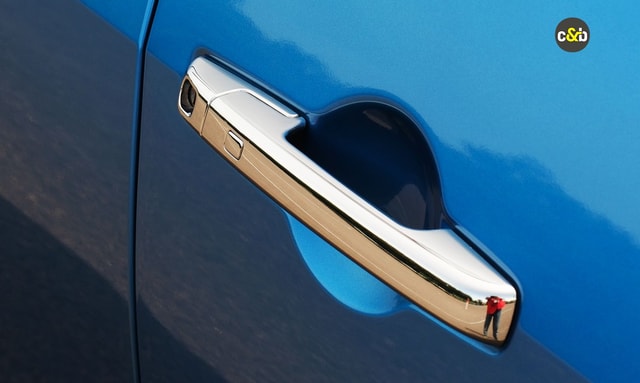 car&bike Team | Feb 3, 2026China Mandates Fitting of Mechanical Door Handles On New Cars From 2027Vehicles already on sale to be given an additional 2 years to conform to the new norms.1 min read
car&bike Team | Feb 3, 2026China Mandates Fitting of Mechanical Door Handles On New Cars From 2027Vehicles already on sale to be given an additional 2 years to conform to the new norms.1 min read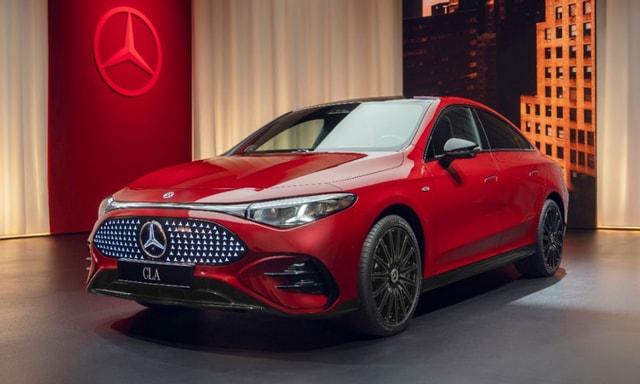 car&bike Team | Feb 3, 2026Mercedes-Benz CLA EV India Debut In April 2026The new-gen CLA, in its all-electric avatar, was globally unveiled in March 2025.1 min read
car&bike Team | Feb 3, 2026Mercedes-Benz CLA EV India Debut In April 2026The new-gen CLA, in its all-electric avatar, was globally unveiled in March 2025.1 min read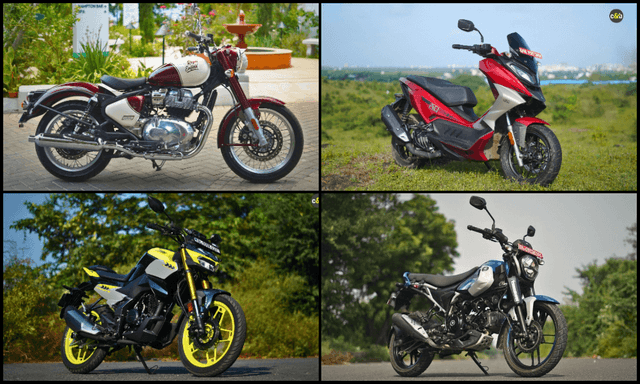 car&bike Team | Feb 3, 2026Two-Wheeler Sales January 2026: Hero MotoCorp, TVS, Royal Enfield, Suzuki Report Sustained GrowthMost brands have reported year-on-year growth in the first month of CY26.4 mins read
car&bike Team | Feb 3, 2026Two-Wheeler Sales January 2026: Hero MotoCorp, TVS, Royal Enfield, Suzuki Report Sustained GrowthMost brands have reported year-on-year growth in the first month of CY26.4 mins read car&bike Team | Feb 2, 2026Car Sales January 2026: Six Marutis in Top 10, But Tata Nexon Takes Top SpotTata Motors sold 23,365 units of the Nexon, creating a clear gap to the Maruti Suzuki Dzire, which finished second with 19,629 units.1 min read
car&bike Team | Feb 2, 2026Car Sales January 2026: Six Marutis in Top 10, But Tata Nexon Takes Top SpotTata Motors sold 23,365 units of the Nexon, creating a clear gap to the Maruti Suzuki Dzire, which finished second with 19,629 units.1 min read car&bike Team | Feb 2, 2026Maruti Suzuki Victoris Crosses 50,000 Sales Milestone In 4 monthsThe compact SUV launched at the onset of festive season has crossed the 50,000 sales mark in about 4 months1 min read
car&bike Team | Feb 2, 2026Maruti Suzuki Victoris Crosses 50,000 Sales Milestone In 4 monthsThe compact SUV launched at the onset of festive season has crossed the 50,000 sales mark in about 4 months1 min read car&bike Team | Feb 2, 2026Maruti Suzuki Announces Price Protection Amid Long Waiting PeriodsCountry’s largest carmaker has said that prices of the cars will not be increased for customers who have already made the bookings1 min read
car&bike Team | Feb 2, 2026Maruti Suzuki Announces Price Protection Amid Long Waiting PeriodsCountry’s largest carmaker has said that prices of the cars will not be increased for customers who have already made the bookings1 min read
 Preetam Bora | Feb 2, 2026TVS NTorq 150 Road Test Review: Bigger, Better & More Efficient!We test the new TVS NTorq 150 out in the real world to get a sense of what it offers in terms of performance, dynamics and fuel economy.7 mins read
Preetam Bora | Feb 2, 2026TVS NTorq 150 Road Test Review: Bigger, Better & More Efficient!We test the new TVS NTorq 150 out in the real world to get a sense of what it offers in terms of performance, dynamics and fuel economy.7 mins read Bilal Firfiray | Jan 21, 2026Tata Punch Facelift Review: New Turbo Engine; Same Old SoulWith the update, the Tata Punch facelift retains its character of being a healthy runabout, which is perfect for Indian roads. But have these changes made it any better?7 mins read
Bilal Firfiray | Jan 21, 2026Tata Punch Facelift Review: New Turbo Engine; Same Old SoulWith the update, the Tata Punch facelift retains its character of being a healthy runabout, which is perfect for Indian roads. But have these changes made it any better?7 mins read Amaan Ahmed | Jan 17, 2026Bajaj Chetak C25 First Ride Review: Basic, Likeable E-Scooter For First-Time RidersThe Chetak C25, in quite a few ways, is poles apart from the larger and more powerful 30 and 35 Series models, but in its mannerisms, it is very much a Chetak.8 mins read
Amaan Ahmed | Jan 17, 2026Bajaj Chetak C25 First Ride Review: Basic, Likeable E-Scooter For First-Time RidersThe Chetak C25, in quite a few ways, is poles apart from the larger and more powerful 30 and 35 Series models, but in its mannerisms, it is very much a Chetak.8 mins read Bilal Firfiray | Jan 9, 2026Toyota Urban Cruiser Hyryder: 10,000 km Long-Term ReviewAfter spending over three months and 10,000 km with the Toyota Urban Cruiser Hyryder Hybrid, we were impressed by its real-world mileage, seamless hybrid, practical comfort, and Toyota reliability. Is it the best C-SUV then?5 mins read
Bilal Firfiray | Jan 9, 2026Toyota Urban Cruiser Hyryder: 10,000 km Long-Term ReviewAfter spending over three months and 10,000 km with the Toyota Urban Cruiser Hyryder Hybrid, we were impressed by its real-world mileage, seamless hybrid, practical comfort, and Toyota reliability. Is it the best C-SUV then?5 mins read Seshan Vijayraghvan | Jan 8, 20262026 Mahindra XUV 7XO Review: Big On Tech, Bigger On ComfortThe new Mahindra XUV 7XO is flashier, feature packed, and comes with more advanced tech. But are the changes just incremental or actually substantial?1 min read
Seshan Vijayraghvan | Jan 8, 20262026 Mahindra XUV 7XO Review: Big On Tech, Bigger On ComfortThe new Mahindra XUV 7XO is flashier, feature packed, and comes with more advanced tech. But are the changes just incremental or actually substantial?1 min read




